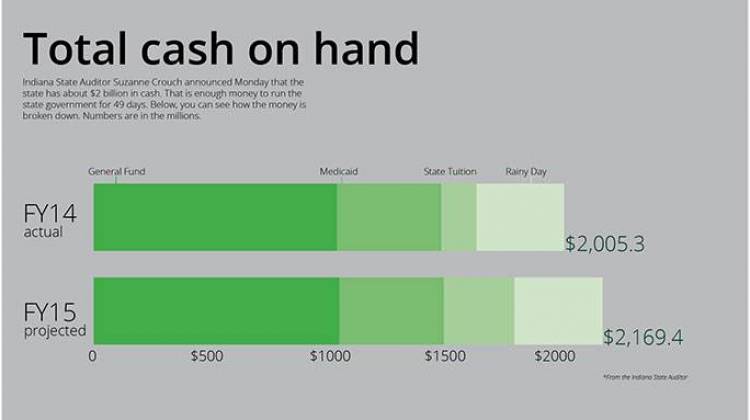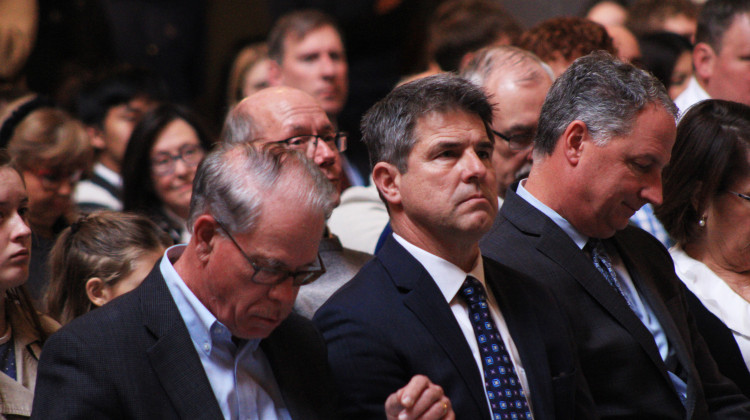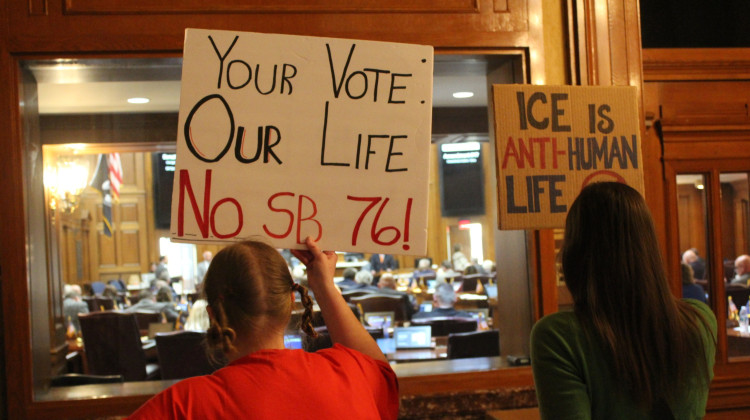INDIANAPOLIS – The state ended the fiscal year on June 30 with $2 billion in the bank and spent $107 million less than it received from taxes, state Auditor Suzanne Crouch announced at the state’s 2014 closeout on Monday.
Overall, the state spent roughly $15 billion during the last fiscal year, a number that is expected to tick up slightly next year.
Crouch said the numbers show that the Indiana economy is in a good place.
“At the end of the fiscal year, we do not want to have to go back to Hoosier taxpayers and raise taxes because we need more money,” Crouch said. “By living within our means, keeping prudent reserves and identifying areas of potential growth, we can continue to make Indiana the fiscal envy of the nation.”
But Democrats say it’s evidence the state is “hoarding” money that should be spent on services for Hoosiers.
“There is nothing to celebrate today. To be proud or delighted about these numbers is disgraceful,” said Rep. Greg Porter, the ranking Democrat on the budget-writing House Ways and Means Committee.
The year-end report showed that the general fund – the state’s main checking account – has a balance of nearly $1.4 billion, while the Medicaid reserve account contains $445 million, the school reserve contains $150 million, and the rainy day fund has $373 million.
The total is expected to increase by about $164 million next year.
In both years, the state reserves are about 14 percent of its spending. That’s meant to provide a cushion in case of a severe economic downturn or emergency. State government could operate 49 days with the $2 billion reserve.
This year, the state took in about $14.6 billion in taxes and fees and spent about $14.5 billion, resulting in a $106.8 million surplus.
That’s in part thanks to $188 million in unspent money that state agencies returned to the general fund.
In December, Gov. Mike Pence ordered universities to cut their state spending by 2 percent and said that he would sell a plane as a part of a larger plan to account for lower-than expected tax receipts.
He also told state agencies to cut their budgets by an additional 1.5 percent and delayed planned spending on the Indiana Biosciences Research Institute.
But Democrats said holding back money while apparent financial needs still exist throughout the state is a bad practice.
Senate Minority Leader Tim Lanane, D-Anderson, said in a statement that the state should not congratulate itself for “hoarding tax dollars while so many of those taxpayers continue to struggle.”
“The bottom line should be about the overall well-being of Indiana’s citizens, not just money in the bank,” Lanane said. “At a time when we should be investing in Indiana to improve the abysmal state of Hoosier’s incomes and health, we are hoarding hard-earned taxpayer’s dollars instead of returning it to them with meaningful programs and services. It seems we have our priorities wrong.”
He said that taxpayer money should be going into services including making college more affordable, improving the state’s infant mortality rate, and public school funding.
Porter said in a statement that the impact of the “Republican bloodlust to cut taxes for the wealthy” over the next few years will hurt Hoosier taxpayers.
And the Democratic nominee for state auditor, Mike Claytor, said in a statement that if elected, he would not support any efforts to put the state’s cash balance ahead of the needs of its residents.
He also cautioned Pence on trumpeting a large surplus when the General Assembly never restored a $300 million cut to education that occurred under former Gov. Mitch Daniels – even though schools have continued to receive more money. He said there are a number of lawsuits pending against the state.
“If I didn’t pay my bills, I would have a large surplus too,” Claytor said.
Crouch said that her office ensures that the state’s income and expenditures are timely, transparent, and accurate and confirms that Hoosiers’ tax dollars go to their intended purposes.
“The trust a taxpayer grants to an elected official is a sacred trust,” Crouch said. “Every tax dollar should be spent with serious consideration and respect for the individuals who earned those dollars. Each tax dollar has a name and a face attached to it.”
Alec Gray is a reporter for TheStatehouseFile.com, a news website powered by Franklin College journalism students.
 DONATE
DONATE







 View More Articles
View More Articles


 Support WFYI. We can't do it without you.
Support WFYI. We can't do it without you.